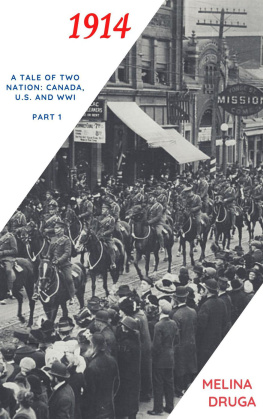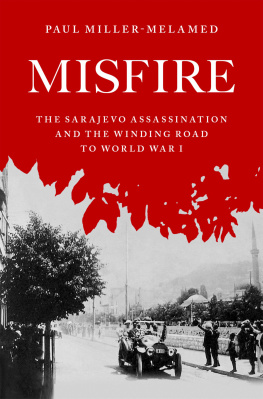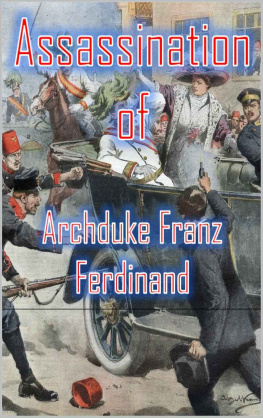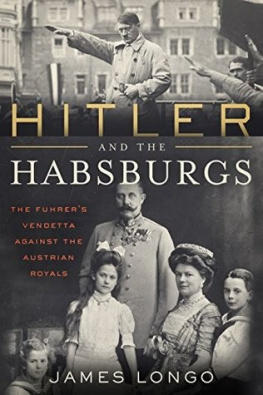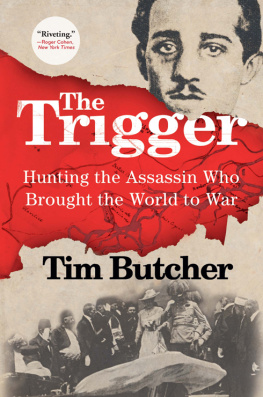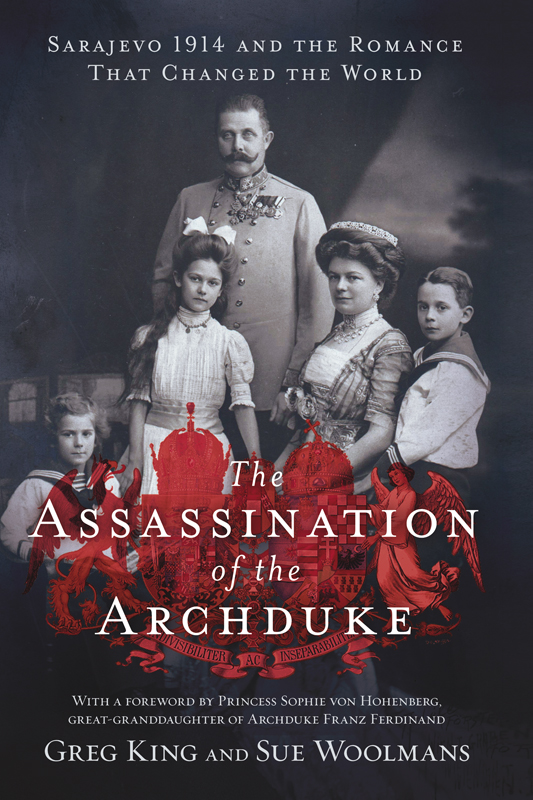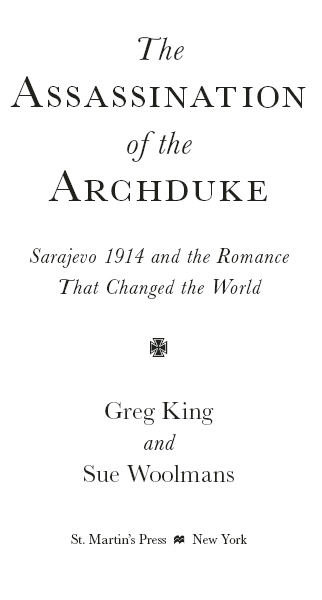
The author and publisher have provided this e-book to you for your personal use only. You may not make this e-book publicly available in any way. Copyright infringement is against the law. If you believe the copy of this e-book you are reading infringes on the authors copyright, please notify the publisher at us.macmillanusa.com/piracy.
In memory of Sharlene Aadland
G REG
To the memory of my dear parents
Daphne and Ian Maillot
S UE
CONTENTS
FOREWORD
BY SOPHIE VON HOHENBERG
I vividly remember the first e-mail I received from Sue Woolmans and Greg King. I sat back and thought, Should I answer? Then I remembered an old story.
I believe it was at my sisters wedding. I was standing on the terrace with my grandmother, and we were watching Aunt Sophie (daughter of Archduke Franz Ferdinand of Austria-Este and Sophie Duchess of Hohenberg), who was patiently answering the questions of the journalists. I commented to my grandmother, How can she stand it? My grandmother answered that she herself had once, years ago, asked her sister-in-law why she bothered answering all those questions. The journalists dont listen, and write what they want anyway, so why bother? Aunt Sophie had an amazing answer. As if it were the most normal thing in the world she said, But I must defend him, him being her father.
Since then I have read many books about my great-grandfather, and few have done him justice. Sue and Gregs book was different: It was to be a book about my great-grandparents, their private life, and the repercussion of Sarajevo on the Hohenberg children.
The destiny of my grandfather and his siblings is remarkable. They led lives strewn with tragedy and hardship, but they strode through it, their heads held high, with courage, resilience, and faith. They were happy, good-humored, joyful people, and I admire their stance after all. They were the first orphans of the First World War, and the first victims of the young Czechoslovakian Republic, chased from their home and their country. Their possessions were illegally confiscated without any compensation. The Hohenberg brothers were the first Austrian aristocrats in Dachau concentration camp. They struggled against prejudice, discrimination, and injustice. Their home, Konopischt, was seized almost one hundred years ago, just after the First World War. This larceny was perpetrated by a state before any legal basis existed, right under the nose of the Allies, who did not budge, even when Prince Jaroslav Thun-Hohenstein, the childrens legal guardian, tried to protest and started a legal battle. My grandfather Max Hohenberg continued, and I have tried to follow suit after the Iron Curtain fell, picking up where my grandfather had left the battle for our heirloom and for justice, but success still evades me.
I thank Sue Woolmans and Greg King for this book, and for their work in researching this tribute to the people I admire and that are so close to my heart.
Luxembourg, January 2013
ACKNOWLEDGMENTS
We gratefully acknowledge the permission of Her Majesty Queen Elizabeth II to publish material from the Royal Archives. We would also like to extend our thanks to the registrar of the Royal Archives, Pamela Clark, and her staff for all their help and good-humored support, and to Lisa Heighway, curator of photographs at the Royal Collection, for patiently answering inquiries.
HSH Georg, Duke of Hohenberg, graciously gave us permission to access the Nachlass Erzherzog Franz Ferdinand, the collected letters and papers of his grandfather Archduke Franz Ferdinand, at the Austrian Haus-, Hof- und Staatsarchiv, Vienna. We are very grateful to him and thank the staff at the Staatsarchiv for their help during our visit. We also thank HSH Prince Albrecht of Hohenberg for sharing family memories with us, and Prince Nikolaus of Hohenberg for his contribution to our research.
HSH Princess Anita of Hohenberg very kindly granted us an interview, provided unrestricted access to the Erzherzog Franz Ferdinand Museum at Artstetten, and allowed us to use material from her archives. We sincerely appreciate her invaluable cooperation on this book. We must also thank Brigitte E. Leidwein of the museum, who has facilitated interviews, patiently answered questions, and searched out obscure archival materials.
Unending support, help, and encouragement have come from HSH Princess Sophie of Hohenberg and her husband, Baron Jean-Louis de Potesta. Princess Sophie has proved an indefatigable supporter, generous with both her time and her family knowledge. We are incredibly grateful to them both, and this book would certainly be the poorer without their generosity and continued interest.
The foremost Austrian scholar on Franz Ferdinand is Professor Dr. Wladimir Aichelburg. He has freely shared his knowledge with us and guided us on many points that could have led to mistakes. He has our deepest thanks.
Robby Joachim Gtze of the Kustos Kunstsammlung, Museum und Kunstsammlung, Schloss Hinterglauchau in Glauchau, Germany, generously supplied us with the correspondence between the Duchess of Hohenberg and her sister Oktavia, which has been a valuable resource. Milo Musil, Andrea Leskotov, and Miroslava Jankov take care of the Chotek property of Velk Bezno (Grosspriessen), in the Czech Republic. They warmly welcomed us to the estate and shared much information with us and we thank them for their generous help. We are also indebted to Baron Raimondo Corsi di Turri, who has kindly allowed us to quote from the letters of his grandmother, Lucy Fane Wingfield.
Many people have greatly helped us during the research and writing of this book. Karen Roth has spent hours on translation work for us and been the best friend authors can have, and she has our sincere thanks. Harold Brown of the Victorian B & B in Tunbridge Wells, East Sussex, UK, rummaged around in a drawer to find some important new materials for us for which we are very grateful. Janet Ashton supplied important research materials and offered incisive critical commentary that helped guide us as we wrote. We appreciate all of the thoughts she shared to make this a better book. Penny Wilson read through the manuscript several times and suggested important changes that kept the story on course, especially at times when it could have bogged down in needless detail. Jeannine Evans also read the manuscript and offered helpful corrections and impressions. We must single out Mark Andersen, who has sourced many obscure books we would otherwise not have been able to consult and has helped so much with our picture research. His friendship is truly valued. Milena Currall guided us through the Czech language and so we say Dkuji! to her. Christophe Vachaudezs generous help has been invaluable. We must also acknowledge the generous assistance of H. Mike Pyles in completing this book.
Our agent, Dorie Simmonds, first seized upon the idea for this book with relish and supported us throughout a long and occasionally tangled process. Charles Spicer, our editor at St. Martins Press, has believed strongly in this book and helped steer us toward completion, as has Georgina Morley, at Pan Macmillan in London. April Osborn, editorial assistant at St. Martins Press, has guided us in completion of the manuscript and patiently dealt with numerous queries.
A number of people have shared important archival holdings or private materials and patiently answered numerous questions as we wrote this book. We gratefully thank Professor Francis Roy Bridge; Dr. Jiri Chramosta; Frances Dimond, formerly of the Royal Archives at Windsor; Dr. Susanne Glass, ARD-Korrespondentin fr sterreich und Sdosteuropa; Bethany Hall; Dr. Christoph Hatschek, director of Viennas Heeresgeschichtliches Museum/Militrhistorisches Institut; Debbie Hopkinson of Manuscripts and Special Collections at the University of Nottingham; Gareth Hughes, collections manager of the Portland Collection; Alastair Hutchinson of Hutchinson Mainprice Solicitors; Baron Viktor Kuchina von Schwanburg; Albert Knoll from the archives at Dachau; Ricardo Mateos Sainz de Medrano; Professor Ilana Miller of Pepperdine University in California; Professor Paul Miller, Marie Curie Fellow at the University of Birmingham; Alberto Penna Rodrigues; Szymon Pozimski of St. Peters College, Oxford; Professor John Rhl; Ian Shapiro; Ji Smitka, chief of the Department of Family Archives at the State Regional Archives, Prague; Dr. Arthur Stgmann, Archiv und Bibliothek, of the Princely Collections, Liechtenstein; Frstliche Sammlungen Art Service GmbH & Co OG; Stephen Sullivan, library service adviser, Worksop Library, Nottinghamshire; Bixanne Tam; Richard Thornton, chair, Royal Weekend, Ticehurst, Sussex; and Ulrike Polnitzky and the staff of Bildarchiv und Grafiksammlung, sterreichische Nationalbibliothek.



